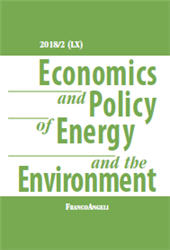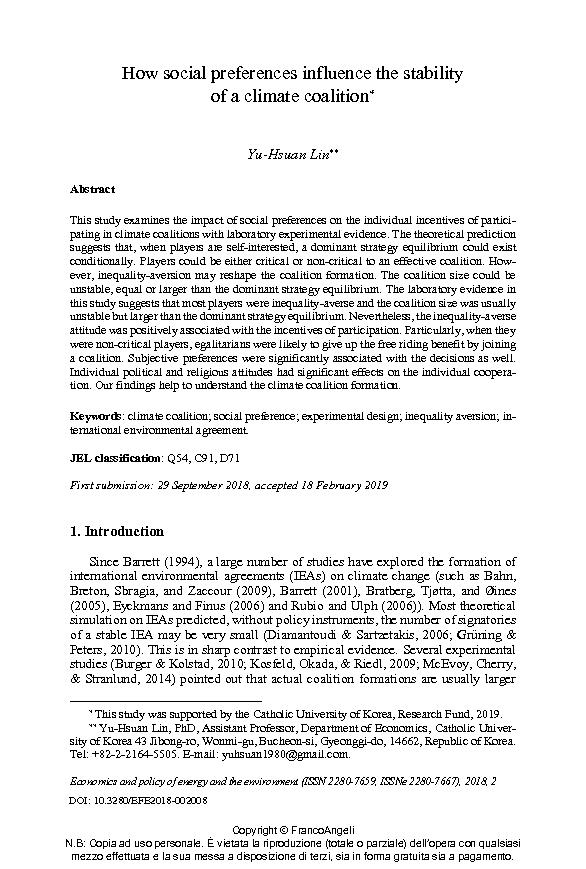How social preferences influence the stability of a climate coalition
151-166 p.
This study examines the impact of social preferences on the individual incentives of participating in climate coalitions with laboratory experimental evidence. The theoretical prediction suggests that, when players are self-interested, a dominant strategy equilibrium could exist conditionally. Players could be either critical or non-critical to an effective coalition. However, inequality-aversion may reshape the coalition formation. The coalition size could be unstable, equal or larger than the dominant strategy equilibrium. The laboratory evidence in this study suggests that most players were inequality-averse and the coalition size was usually unstable but larger than the dominant strategy equilibrium.
Nevertheless, the inequality-averse attitude was positively associated with the incentives of participation. Particularly, when they were non-critical players, egalitarians were likely to give up the free riding benefit by joining a coalition. Subjective preferences were significantly associated with the decisions as well. Individual political and religious attitudes had significant effects on the individual cooperation. Our findings help to understand the climate coalition formation. [Publisher's Text]
-
Articoli dello stesso fascicolo (disponibili singolarmente)
-
Informazioni
Codice DOI: 10.3280/EFE2018-002008
ISSN: 2280-7667
MATERIE
PAROLE CHIAVE
- Climate coalition, social preference, experimental design, inequality aversion, international environmental agreement



